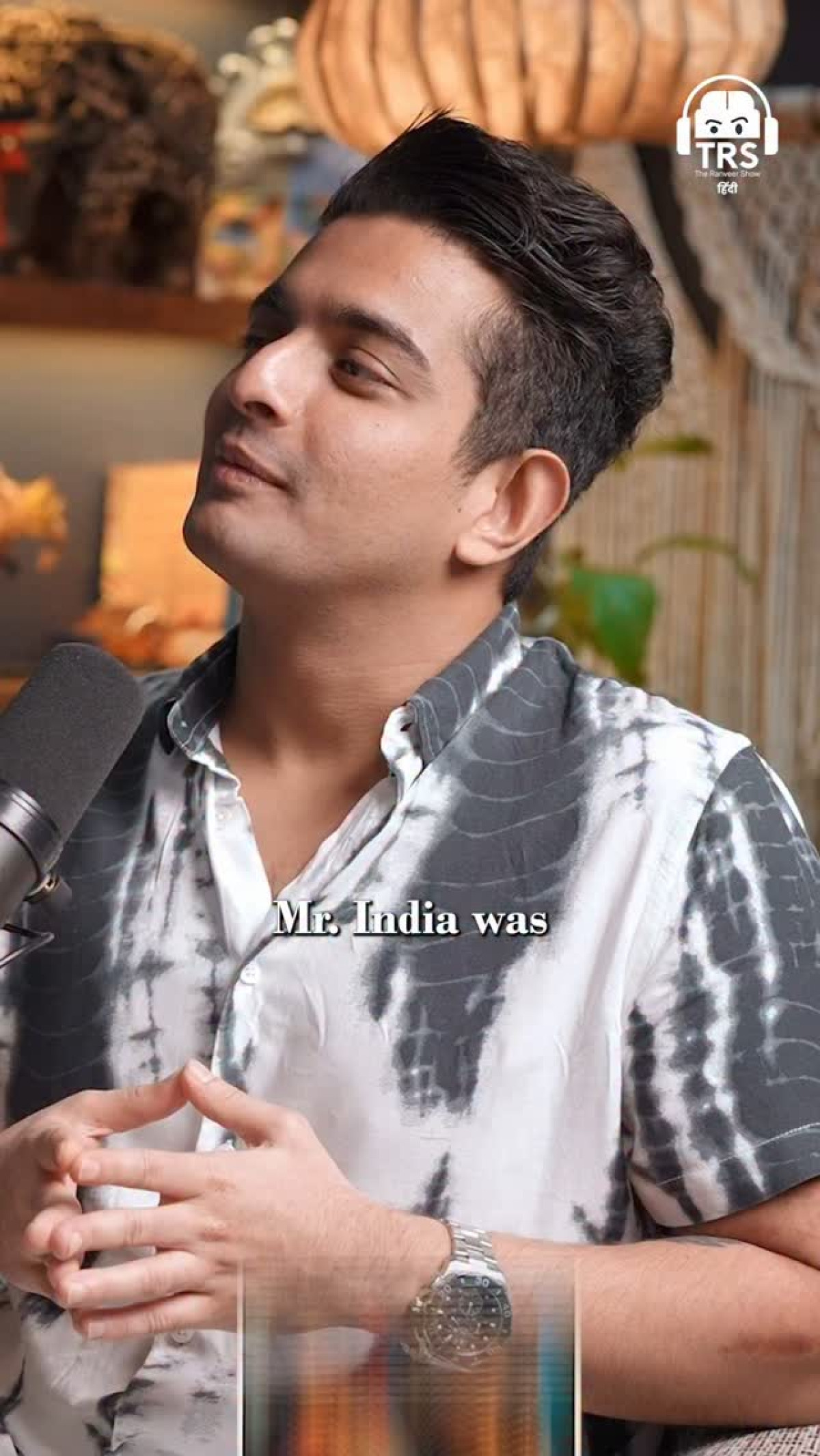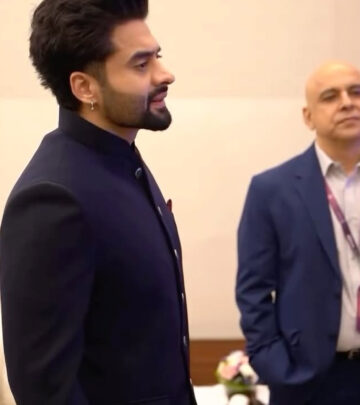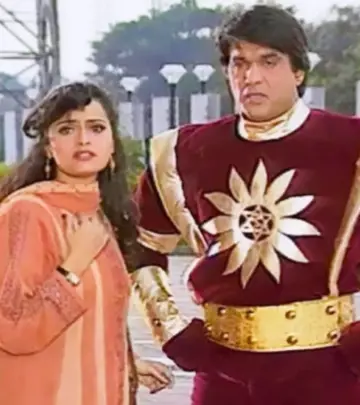Shekhar Kapur Reveals Mr India Concept Origin
Acclaimed director unfolds his inspiration behind one of Bollywood's most cherished films.

Image: Instagram
Shekhar Kapur, the renowned filmmaker and Padma Bhushan awardee, has recently opened up about the creative process behind one of Bollywood’s most iconic films – Mr India. In a candid conversation that has caught the attention of film lovers and industry insiders alike, Kapur delves into the vision and inspiration that led to the conceptualization of the blockbuster film. The conversation, featured during a detailed interview with popular digital personality Ranveer Allahbadia, offers fans a unique glimpse into the director’s journey from idea to screen magic.
The Creative Journey Unveiled
In the recent episode shared on YouTube via Ranveer Allahbadia’s channel, Kapur recounts the intricate process of how Mr India was conceptualized. The discussion centers on the moment when he first envisioned a story that would challenge traditional narratives and offer something unseen in Bollywood at the time. According to the filmmaker, the spark came from his desire to create a film that not only entertained but also stretched the boundaries of imaginative storytelling.
With an impressive career that spans decades, Kapur has been at the forefront of innovative cinema in India. His willingness to experiment and his commitment to pushing creative limits have always set him apart from his contemporaries. This interview, which is episode 238 of the series, highlights not only his personal reflections on Mr India but also his broader outlook on cinema as a form of art that evolves with the times.
From Concept To Classic
Kapur explains that the idea behind Mr India was born during a period of introspection and bold creative daring. At a time when Bollywood was still finding its footing on the global stage, he saw an opportunity to craft a narrative that was as inventive as it was groundbreaking. The film’s protagonist, with his unique blend of charm and the inexplicable ability to become invisible, became a metaphor for the underdog—the unheard voice of the common man. The director details how his mind was constantly abuzz with possibilities, and every creative meeting felt like unwrapping a new layer of the story.
During the episode, Kapur also touches upon the challenges inherent in translating such an abstract concept onto the big screen. The technological limitations of the era meant that the idea of invisibility, as depicted in the film, required not only a strong narrative but also ingenious filmmaking techniques. His recollections serve as an important reminder of the extraordinary efforts that went into realizing a vision at a time when the tools available were far less advanced than what filmmakers have today.
A Legacy That Endures
In addition to the behind-the-scenes look at Mr India, Kapur’s interview also reflects on the lasting impact of the film. Despite having been released decades ago, Mr India has retained its status as a classic in Bollywood history. The film continues to inspire new generations of filmmakers and cinephiles around the world. Kapur’s narrative is both a memoir and a testament to the enduring legacy of creative rebellion against conventional storytelling.
Now available to watch in full on YouTube courtesy of Ranveer Allahbadia’s channel, this episode is a must-see for fans of Indian cinema. It provides not only a historical account of how one of the nation’s most beloved films came into existence but also offers insights into the personal creative philosophies of one of its most acclaimed directors.
Kapur’s account is marked by his down-to-earth approach and willingness to share intimate details of his artistic journey. He talks about the long hours spent brainstorming ideas, the excitement of early drafts, and the nerve-wracking moments before a major scene was finally executed. His recollections reveal an artist who was deeply committed to creating something entirely new, something that would resonate with audiences long after the credits rolled.
For many, Mr India is more than just a film—it represents an era of bold experimentation in Bollywood. The film’s iconic narrative and memorable characters continue to live on in the hearts of moviegoers. Kapur’s discussion also touches upon the collaborative spirit of filmmaking, noting how every member of the team, from the scriptwriters to the special effects crew, contributed to making the movie a timeless success.
The conversation also provides context for Kapur’s evolving perspective on cinema. Having directed films across various genres and decades, his reflections underscore a persistent passion for reinventing storytelling. He recalls how the excitement of bringing Mr India to life was matched only by the humility he felt in front of the immense challenges of filmmaking. This balanced outlook not only cements his reputation as a creative force but also as an enduring icon in the industry.
Moreover, the interview sheds light on Kapur’s personal journey. While acknowledging the pressures and constraints of the commercial film industry, he emphasizes that true art often requires one to step out of the conventional mold. This message resonates strongly in today’s era, where filmmakers are continuously striving to find the right balance between commercial success and creative integrity.
Many fans have taken to social media to express their admiration for Kapur’s openness. Among the engaging Instagram posts circulating around the episode are trivia, behind-the-scenes photographs, and nostalgic snapshots that evoke memories of Mr India’s release. One particular Instagram post highlights Kapur’s characteristic wit as viewers are humorously reminded to take care of details on and off set—even jokingly urging him to “WEAR SUNSCREEN” in the comments section. Such interactions only add to the richness of the conversation and highlight the myriad ways in which modern audiences connect with cinematic history.
Kapur’s interview is a vivid reminder of the legacy of Indian cinema, where every film is often a passion project that reflects broader cultural narratives. It stands as a bridge between the classic era of Bollywood and the innovative techniques of today. The re-telling of his journey not only reaffirms his stature as a visionary director but also invites younger audiences to appreciate the nuanced art of filmmaking—a pursuit that continues to evolve with time.
In concluding his discussion, Kapur acknowledges the role of inspiration and persistence in creating films that leave an indelible mark on popular culture. His reflections serve as valuable lessons for aspiring filmmakers who wish to draw on their personal experiences and challenge the status quo. By sharing these insights, Kapur ensures that the art of storytelling remains a vibrant and ever-evolving tradition in Indian cinema.
With Mr India now celebrated as a landmark film, this latest episode stands as a testament to the enduring power of creative vision. It is a call to honor the dedication, innovation, and the relentless spirit of filmmaking—a spirit that continues to inspire and transform the way stories are told.
In summary, Shekhar Kapur’s recollections of conceptualizing Mr India not only offer a nostalgic look at the making of a classic film but also serve as a motivational blueprint for creative minds everywhere. His story is proof that groundbreaking art is born from a blend of imaginative courage and persistent effort. This interview is a must-watch for anyone interested in the magic behind the movies and the legacy of one of Bollywood’s most influential directors.
Read full bio of Preeti Jha


















